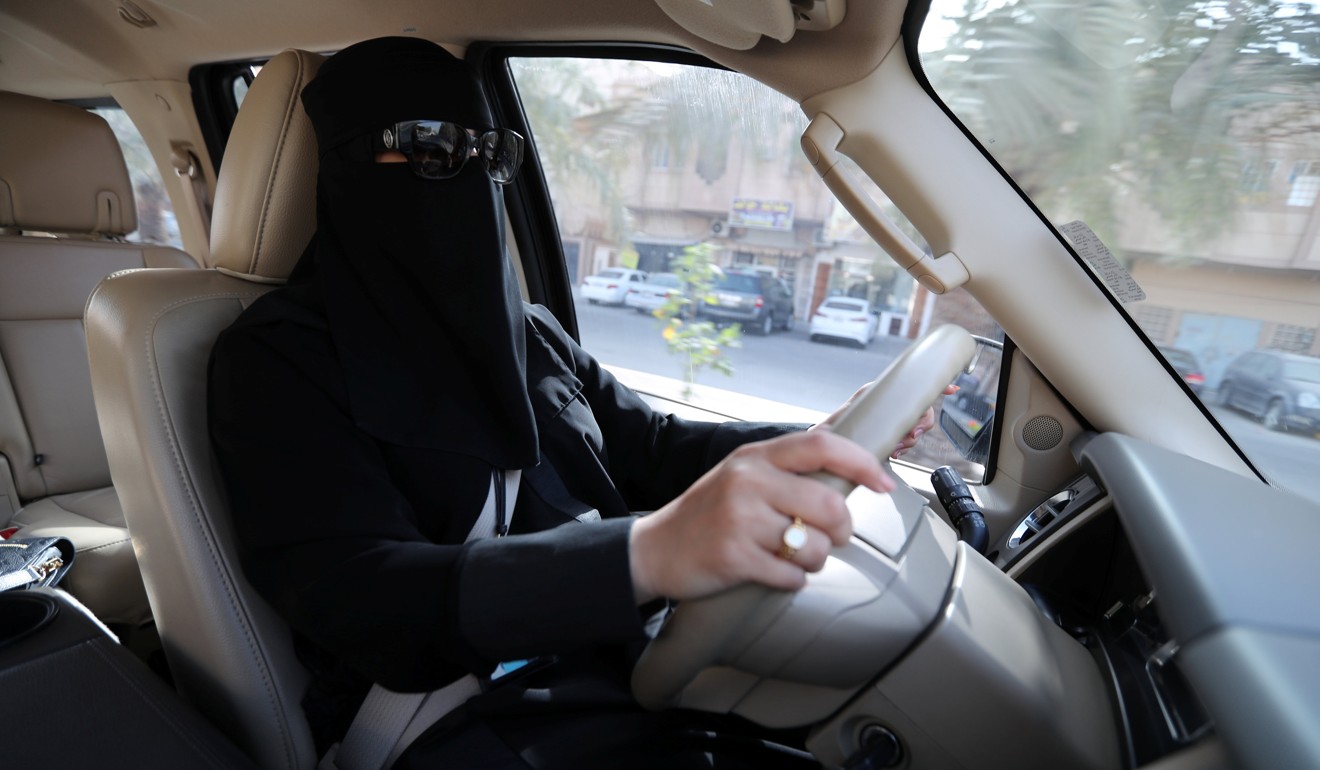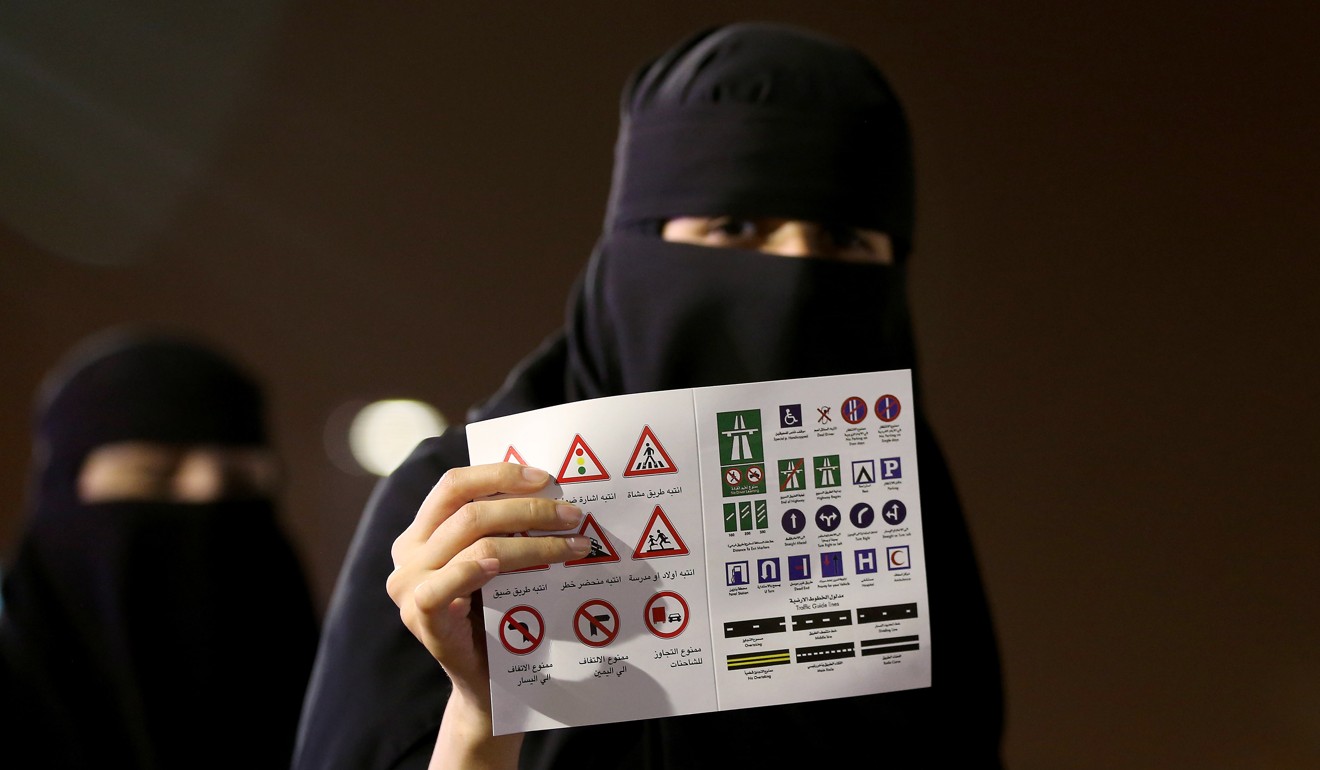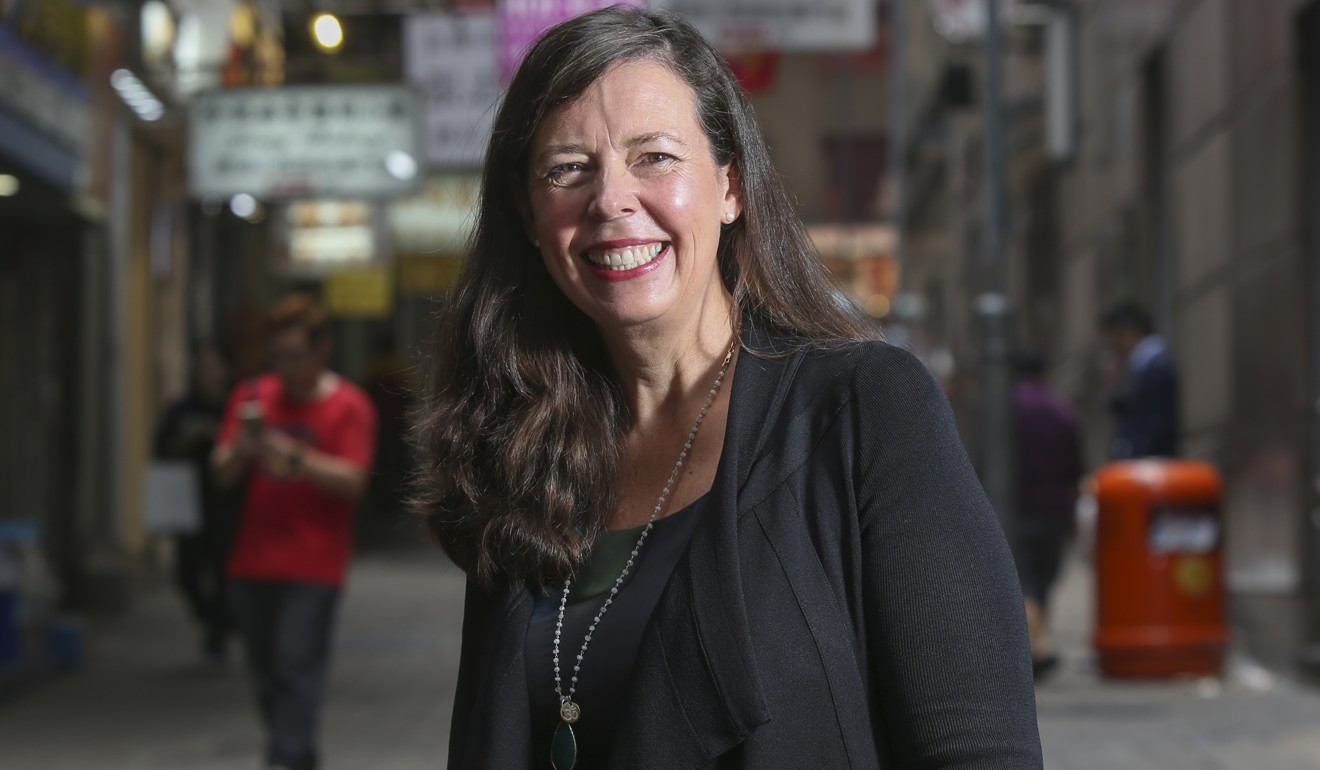
Saudi Arabia’s treatment of women is still a travesty despite end of driving ban, but Hong Kong has no grounds to gloat
Luisa Tam says the lifting of restrictions on women getting behind the wheel in the Middle Eastern nation is only a small step to address a large problem, and while it is easy to point the finger overseas, Hongkongers themselves have a long way to go to achieve true equality between the sexes
I am not sure whether to applaud or chastise Saudi authorities following their lifting of a long-standing ban on women drivers in the ultra-conservative Middle Eastern nation – the only place in the world with such a restriction.
No doubt the ending of the 61-year-old law will give 15 million women much greater freedom of movement. But the change didn’t come because the Kingdom of Saudi Arabia suddenly decided to respect women’s rights. Rather, it is inevitable as the country finds itself forced to keep pace with the changing times, or at least appear to do so.
Saudi rulers desperately want to modernise and diversify the petro-dependent economy. As a result they feel compelled to try and shed the country’s highly oppressive image, and a good starting point was the driving ban – a common topic of discussion in the international media.

The reform push has not gone far enough. Many other shackles of patriarchy remain due to the long-standing customs imposed by a system of male guardianship. As long as this stays in place, the social significance of ending the driving ban will be diminished.
Awarding women the right to drive while at the same time still depriving them of other basic freedoms is like keeping them on a leash and merely extending its length. A Chinese saying describes such situations as “changing the broth without changing the ingredients”.
In other words, it’s not true freedom.
Saudi women ‘still enslaved’ despite end of driving ban, says activist
According to the World Economic Forum’s Global Gender Gap Report 2016, Saudi Arabia was ranked 141st out of 144 countries in gender equality. Its women have limited rights compared to their counterparts not only in the West and much of East Asia but also in many neighbouring countries.
In reality, the quashing of the driving ban is no more than a catalyst to realise a host of economic benefits, mostly in automobile-related sectors and by boosting the workforce and entrepreneurship.
Economists have estimated three million women will get behind the wheel, which in turn will boost local petrol consumption and car sales, as well as demand for driving instructors, driving schools, and related businesses such as insurance and finance. Other sectors such as retail and leisure will also cash in.
Carmakers Toyota and Ford have hired some 100 saleswomen to prepare for a sudden increase in female buyers. Families are in line to save a tonne of money because women now no longer need to spend a big chunk of their income on drivers. It will boost female participation in the workplace and reassure investors that the kingdom can diversify its economy.
Saudi Arabia gears up to end women driving ban – but activist detentions point to a rocky road for reforms
But however good all this may sound, there are many troubling issues bubbling below society’s surface.
As we rejoice at the momentous change, we must not forget the bigger picture in Saudi Arabia. Women are still bound by the law to be accompanied by a male guardian wherever they go – typically a husband, brother, father or uncle.

In comparison to the rest of the world, the Saudi situation regarding women’s rights seems medieval, and dare I say, barbaric.
But the flip side to the criticism is that we must all reflect also on the situation closer to home. It is easy to target the Middle East, but can Hong Kong claim to be truly modern in this regard?
According to Fiona Nott, CEO of The Women’s Foundation, the perception that Hong Kong women are a force to be reckoned with in business is not totally accurate.
Hong Kong still failing its women
A census from 2016 showed women in the education sector earned a whopping HK$9,800 (US$1,250) a month less than men, while women in finance took home HK$8,800 less. In health and social care, women’s monthly salaries fell short of men’s by HK$8,000.
Women’s earnings also lag as they age. Figures show those in their 50s bank nearly a quarter less than their male counterparts.

Although legislation passed at the beginning of this year aims to close this local gap, with companies and government agencies now required to prove they pay all employees equally, the situation in Hong Kong remains skewed.
Polls of women in high-powered positions in public relations and communications have found the majority believe having children holds them back in their careers. But equally, Asian women feel a pressure to work long hours instead of conventional 40-hour work weeks.
The solution? The obvious one is to close the pay gap for good. This can be helped along by offering more concessions to mothers such as the ability to work from home and additional flexibility and security during maternity leave.
Long way to go for women even if in Saudi Arabia they can drive now. Five other discriminatory laws around the world
We also need to consider men’s roles. What about making paternity leave more rewarding by improving on the present paltry five days, so that women itching to get back to the office can do so while their spouses take the reins at home for a bit?
Sweden is something of a pioneer in this domain and offers men and women up to 480 days of subsidised leave per child, which can be split between the parents. The number of Swedish men claiming paternity leave continues to rise each year and shows no sign of abating.
Although the world has made progress on gender rights, not a single nation can claim to be home to true equality between the sexes.
While countries such as Saudi Arabia have much to work on, it is easy for us in Hong Kong and other seemingly modern economies to turn our noses up, when we should be examining our own societal shortcomings and thinking about what we can offer our own women and men before passing judgment on others.
Luisa Tam is a senior editor at the Post

